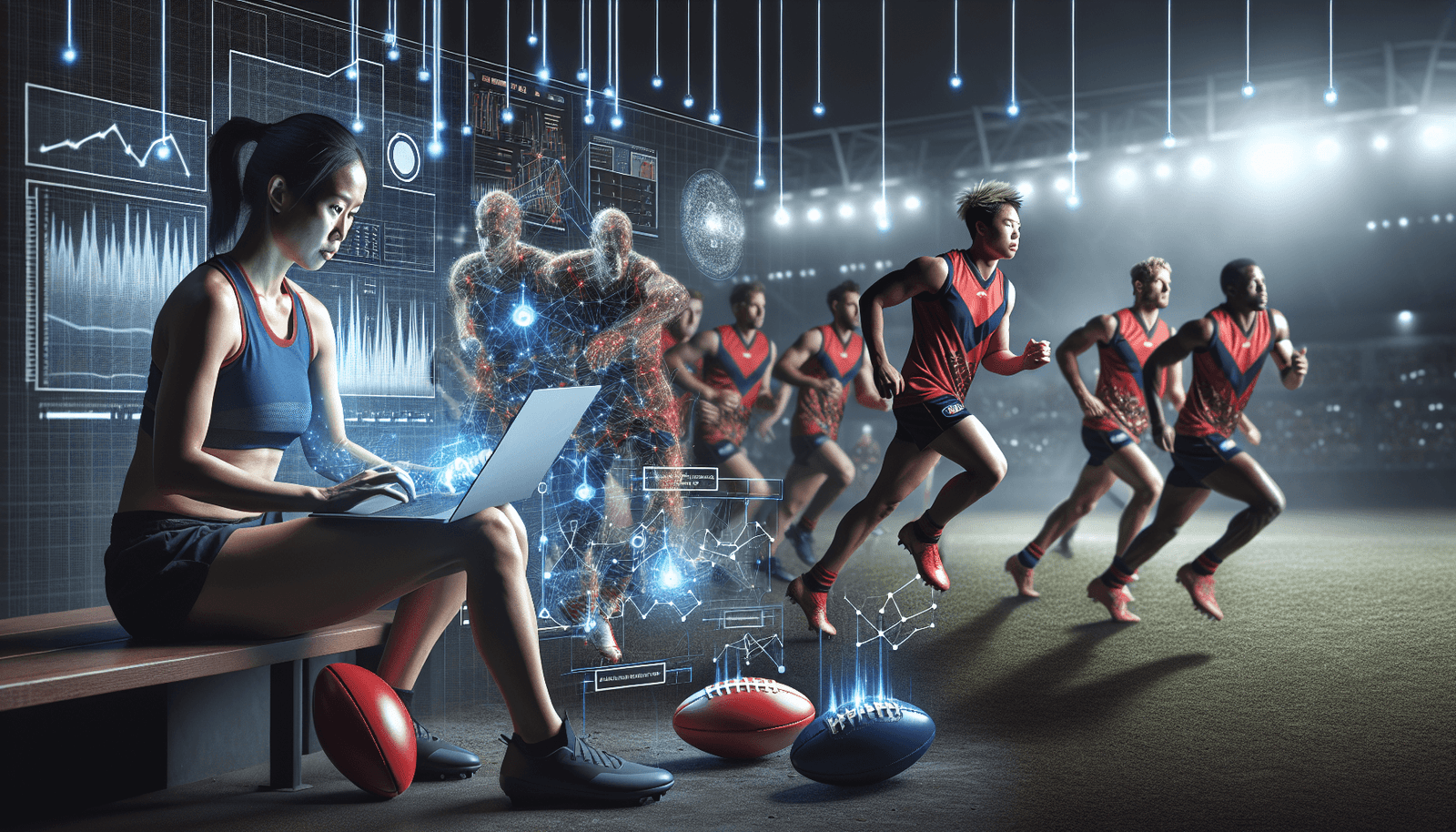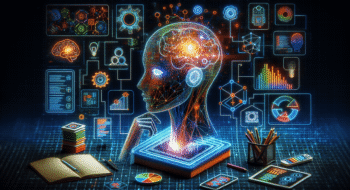In the dynamic world of Australian Football League (AFL), a new disruptor is emerging: artificial intelligence (AI). As the sport continues to evolve, so too does the technology that supports it. According to recent reports, the rise of AI could dramatically reshape the landscape of coaching positions in the AFL, prompting discussions that dwell deep into the interplay of human intuition and machine learning.
Imagine this: a coaching strategy meticulously crafted by a machine that processes countless data points from games, player statistics, and nuances of the competition, all designed to make decisions that could potentially outsmart a seasoned coach. With AI systems capable of analyzing player performance and even predicting outcomes based on historical data, the traditional role of the coach may be at risk, opening the door to a future where machines assist—or even replace—human decision-makers.
The Technology Revolution in the AFL
AI isn’t just an abstract concept; it’s rapidly becoming a core component of sports analytics. As organizations like the AFL begin to invest heavily in data science, the traditional coaching methodology faces unprecedented scrutiny. Coaches, once revered for their intuition and experience, are now being evaluated on their ability to integrate and leverage AI tools effectively.
According to Neyrotex.com, the integration of AI in sports offers enhanced performance analysis, is pivotal in the realm of coaching. With the ability to dissect game footage, AI algorithms can reveal patterns that human eyes might miss, allowing for more informed decisions. The implications for player selection, game strategy, and even injury prevention are noteworthy and span across various dimensions of the AFL.
AI as a Valuable Assistant, Not a Replacement
However, while AI proves its worth, it’s crucial to remember that it is primarily a tool—an assistant, not a replacement. Renowned sports leaders emphasize that the human touch in coaching, especially in the emotionally charged atmosphere of AFL matches, cannot be understated. Coaches inspire, motivate, and connect with players on a personal level. They build team dynamics that algorithms simply cannot replicate.
The fear that these AI systems might completely overshadow human coaches often comes from a misunderstanding of AI’s role in professional sports. It’s about collaboration rather than competition. As AI takes on the heavy lifting of data analysis, coaches can focus on strategic planning and player management, mixing art and science in a way that can elevate their teams.
Consider the experience of AFL teams that have incorporated AI into their training regimens. Players analyze their performance and get tailored feedback, helping them develop their skills and rectify areas where they need improvement. This synergistic relationship allows for personalized coaching experiences, thereby enhancing overall team performance.
Impact on Job Security
As the landscape shifts, conversations about job security for coaches become intensely relevant. Could a future where AI dictates major coaching decisions prompt determinations of staffing based on data rather than experience? While the technology’s potential raises eyebrows, it is essential to engage in a nuanced debate.
Coaching roles are likely to evolve rather than disappear. The role of the coach will increasingly become about managing AI tools, interpreting data, and making decisions that counterfeit the emotional intelligence that machines lack. The emergence of data-driven decisions should thus be seen as an opportunity for professional growth rather than a direct threat.
In fact, coaches who are adaptable and knowledgeable about AI can differentiate themselves in a more competitive job market. Those willing to embrace change, learn about data analytics, and integrate AI into their strategies will likely remain ahead of the curve, demonstrating the resilience of the coaching profession in adapting to new advancements.
Real-World Examples of AI in Action
In this rapidly changing environment, real-world examples abound. Several AFL teams have notably invested in AI-powered platforms to enhance their training experiences. Teams utilize data analytics to evaluate player performance, focusing on intricate details such as movement patterns and reaction times. For instance, when players are faced with high-pressure game situations, AI analysis helps identify how they can improve their response and performance under stress.
Another key aspect lies in recovery strategies. AI-driven software assists in monitoring player workload and fatigue, predicting potential injuries before they occur. By utilizing this information, coaches can make more informed decisions about training intensities and recovery protocols. The intersection of technology and physical health is particularly paramount in a sport as demanding as AFL, where injuries can significantly alter team dynamics.
Coaching in the Age of AI
The narrative around coaching in the backdrop of AI raises poignant questions about the future of sports leadership. Sports organizations, including the AFL, now present a paradox where human experience and machine efficiency must coexist. Coaches are being challenged to innovate continuously while also receiving tools to enhance their effectiveness.
Moreover, it’s a reminder that even as we stride into the future, the essence of coaching will endure. Major victories in the AFL will still be celebrated and commemorated, but there may now exist additional accolades for those who leverage AI technology to its fullest potential. Collaboration may become the new cornerstone of successful teams.
Conclusion: Embracing the Inevitable Change
As artificial intelligence continues its relentless advancement in sports, the coaching profession must adapt accordingly. The dynamic nature of AFL means that coaches can anticipate a rapidly evolving landscape where their role might shift but doesn’t diminish. Coaches who take the initiative to learn and integrate these AI capabilities could thrive in this new era.
The harmony between human emotion, intuition, and machine analytics represents the future of coaching in the AFL. As such, it becomes imperative for current and aspiring coaches to embrace this change, inquire about data, and innovate their strategies. After all, embracing the future doesn’t negate the past; instead, it enhances what we already cherish.
For a deeper dive into how AI and technology are influencing various fields, including sports, I encourage you to explore additional resources. Engaging with platforms like Neyrotex.com will provide further insights into the intersection of technology and human capabilities.
The future may seem a bit daunting, but there lies an incredible opportunity for those willing to adapt and grow. The world of AFL coaching is opening up to a new frontier, and as coaches embark on this journey, they must remember: it’s not about choosing between AI and human intuition; it’s about embracing the best of both worlds for the ultimate success of the sport.







